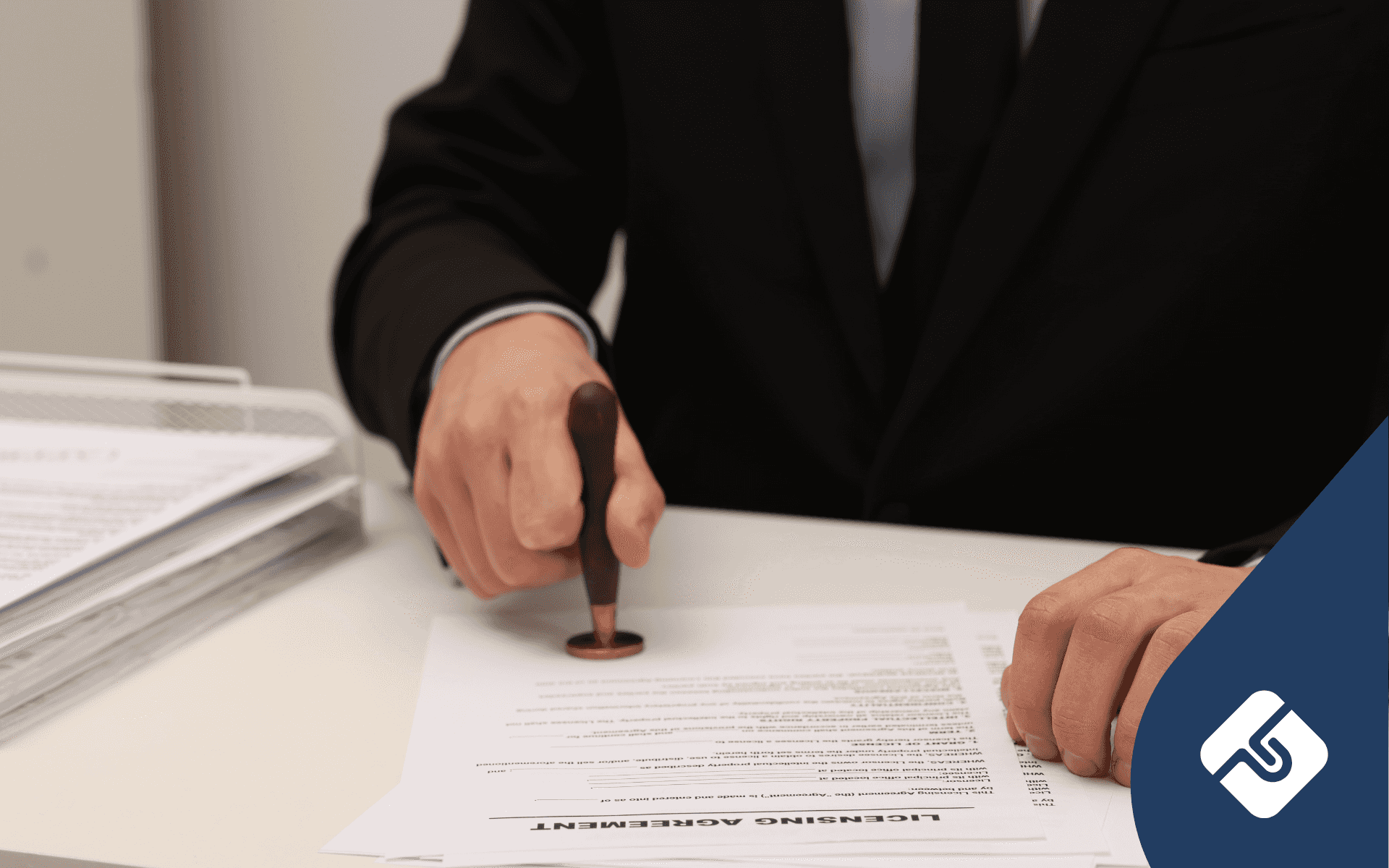💡Key Insight
- Licensing intellectual property allows the owner (licensor) to grant another party (licensee) the right to use specific IP without transferring ownership, enabling use under agreed conditions while retaining legal control of the asset.
- An assignment of intellectual property involves the complete transfer of ownership and exclusive rights from the assignor to the assignee, meaning the original owner no longer controls or benefits from the IP.
- Choosing between licensing and assignment depends on business strategy, as licensing can support ongoing revenue and partnerships while assignment fully transfers commercial rights and may be preferred for one-time sales or acquisitions.
Are you a small business owner with secured intellectual property (IP) rights? Upon successful registration of IP protection, you have the right to assign or licence your IP to another, usually in exchange for monetary benefits.
Some examples of situations where IP rights are transferred include mergers, technology transfer, licensing trademarks and purchasing a product line.
For clarification on your rights as an intellectual property owner, contact an intellectual property attorney.
What Is Intellectual Property?
IP Australia defines intellectual property as the “property of your mind or proprietary knowledge and is a productive new idea you create”. For example, brand logos, slogans or invention ideas are all examples of intellectual property.
IP rights protect the exclusive creations of businesses. This allows businesses to innovate and enhance their brand. IP protections are evident through the use of patents, copyright, as well as registered designs and trademarks.
The Difference Between Licensing and Assigning IP
Both licensing and assigning IP involves some transfer of the use of IP.
However, the key difference is that licensing IP does not involve the transfer of IP ownership whereas an assignment does. Hence, the assignor no longer has exclusive rights to the IP after assigning. This means they can be held liable for unauthorised use of a trademark they once held rights to.
LawPath offers a free online IP agreement template for your customisation to assign IP. Alternatively, you can receive up to three fixed-price quotes from a team of expert IP attorneys to assist in drafting this agreement.
Licensing Intellectual Property
Licensing intellectual property works involves the licensor transferring the right to use the IP, for example a trademark, to the licensee. Typically, this will involve a long-term business relationship between the licensor and licensee.
The licensee pays for the right to use the IP, by way of either lump-sum or instalment payments. A licensor has the discretion to grant either an exclusive, sole or non-exclusive licence, which places limits on how many parties can use the IP. Further restrictions can be placed so that IP can only be used for a particular class of product or geographical location.
Assigning Intellectual Property
Assignment involves the complete transfer of IP ownership from the assignor to the assignee. It is therefore extremely important to draft an IP assignment agreement properly, ensuring that both parties understand their obligations. LawPath recommends getting in touch with an experienced IP attorney to assist with finalising an agreement.
IP assignments involve an irrevocable transfer of commercial rights to the assignee, as part of a one-time agreement. It is not expected that the parties will have future business dealings on how the IP will be used after assignment.
Rather than receiving instalments of royalties for your IP through an ongoing transaction with a licensee, the assignor will receive a lump-sum payment from the assignee. This payment is therefore technically a “purchase price” for the IP. Since all profit components and market value of the IP are transferrable, the price should be determined with proper negotiation and care.
Conclusion
Given the importance of IP to how you differentiate your business and continue to develop it, agreements to transfer its use to others must be drafted with caution, particularly in the case of an assignment.
As a licensor or assignor, you should always perform due diligence checks and negotiate properly with potential licensees or assignees. LawPath recommends contacting an experienced IP attorney to discuss your IP business decisions and how they can affect your brand.
Create an account now to customise, print and download your First Legal Document in minutes.
Still unsure of whether to licence or assign your IP? Contact a LawPath consultant on 1800LAWPATH for advice and obtain a fixed-fee quote from our largest online network of expert lawyers or to get answers to your legal questions.






